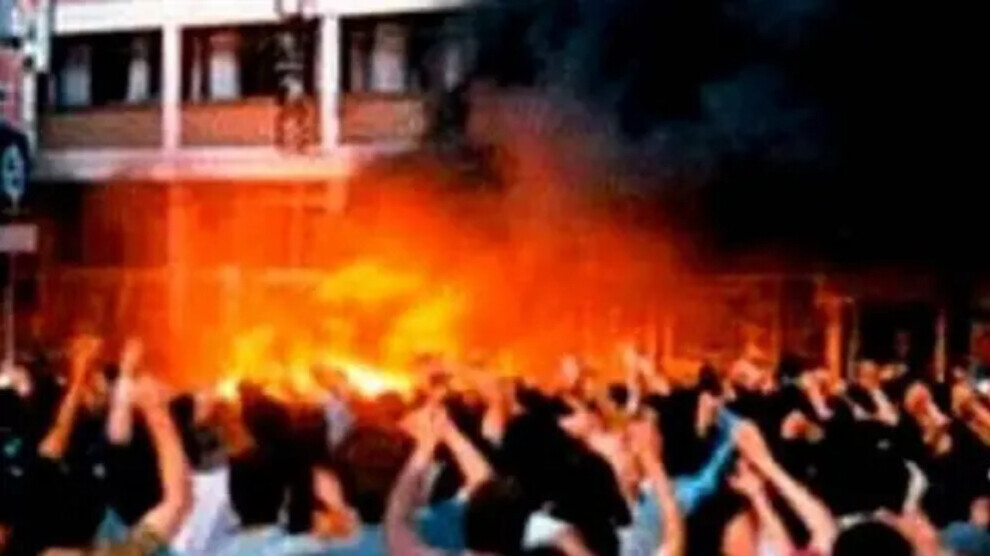KCK issues statement on anniversary of the Sivas Massacre
The Executive Council Co-Presidency of the KCK commemorated those who lost their lives in the Sivas Massacre, which occurred 32 years ago.
The Executive Council Co-Presidency of the KCK commemorated those who lost their lives in the Sivas Massacre, which occurred 32 years ago.

The Executive Council Co-Presidency of the Kurdistan Communities Union (KCK) stated in its written statement, “A way out of this history of massacre and genocide is only possible by overcoming the monist nation-state mentality.”
KCK’s statement reads:
“Thirty-two years have passed since the Sivas Massacre, which we remember with great anger and pain. We once again condemn this massacre carried out by racist, reactionary, and fascist forces, and we respectfully commemorate those who lost their lives. The massacre that took place in Sivas stands as one of the gravest atrocities in human history. Those present in Sivas for an event, mostly writers, artists, journalists, and intellectuals, were brutally murdered when the Madımak Hotel, where they were staying, was set on fire. Many of them were still very young. This barbaric massacre left a deep wound, especially in the Alevi community, but also in the memory of the peoples of Kurdistan and Turkey, both through its purpose and the way it was carried out.
The Sivas Massacre, just like the massacres in Çorum and Maraş, was not only a threat and assault against the Alevi community, but also a massacre directed at the revolutionary, democratic, and enlightened minds of society in Turkey. These massacres, which are the product and design of the monist and reactionary nation-state mentality, were carried out with the aim of darkening the peoples’ free and democratic common future, inciting conflict among communities, turning them into enemies of each other, and ultimately subjugating them. This has been clearly visible in all the massacres carried out against the Alevi community. Each time, provocateurs and paramilitary forces were activated, tensions were deliberately created between sects, and then the stage was set for assaults and massacres. Behind all of these massacres stood the state itself. The state's approach of protecting and absolving the perpetrators reveals its direct role in these massacres. This was also the case in the Sivas Massacre. Those responsible were shielded for years and eventually acquitted.
The state’s approach to Alevis has been no different from its approach to the Kurdish people. Just as Kurds were denied, subjected to massacres, and targeted for annihilation with the founding of the republic, the Alevi community too has been denied, subjected to pressure for their beliefs and culture, and exposed to massacres and attempts at genocide. The same policy has been applied to other peoples and cultures as well. As a people who have experienced this truth firsthand and in depth, the Kurdish people have always shown strong empathy and solidarity with all communities who have suffered massacres, especially the Alevi people.
This denialist, genocidal, and massacre-based approach imposed on all peoples without distinction stems from the monist nation-state mentality. A way out of this history of massacres and genocide can only be achieved by overcoming this monist nation-state understanding. And that is only possible through the democratization of the republic.
The “Call for Peace and Democratic Society” developed by Abdullah Öcalan aims precisely to overcome the history of massacres and genocide, and to build a democratic life where peoples can live together freely and equally. We believe that a democratic society will grow through the alliance and organized struggle of peoples, and that the democratic and free life they long for can only be realized in this way. Our most meaningful response to the massacres committed against the peoples will be to reach this historic goal. With this sentiment and conviction, we once again respectfully commemorate the Sivas Massacre and those who lost their lives in it.”